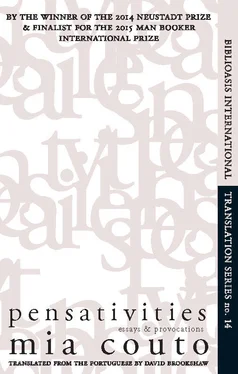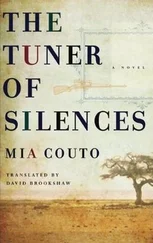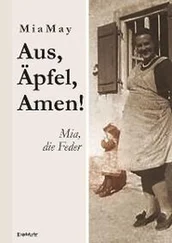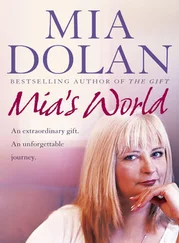Our moneyed elite reflect a childish image of who we are. They’re like children who go into a candy store. They go weak-kneed, fascinated by the array of ostentatious goods. They help themselves to the public purse as if it were their own personal pot of money. Their arrogance shames us, as does their lack of culture, their scorn for the people, their elitist attitude towards poverty.
How I wish Mozambique had rich people with a true, honestly earned wealth! Rich people who loved and defended their country and its people. Rich people who created wealth. Who provided jobs and developed the economy. Who obeyed the rules of the game. In short, rich people who enriched us.
Let’s hope our elite commits suicide alone. Don’t let them drag us and the whole country into the abyss.
Published in the Mozambican newspaper,
Savana , December, 2002
A Word Of Advice And Some Advice Without Words
I am a writer and a scientist. I see the two activities, writing and science, as being close and complementary. Science lives on our inquisitiveness, on our desire for boundless knowledge. Writing is a false tranquillity, a capacity to feel boundless. Both result from the refusal to accept frontiers, both are a desired step beyond the horizon. Biology, for me, isn’t just a scientific discipline, but a story to enchant us, the story of the oldest journey, which is that of Life. This is what I ask of science: that it may induce in me a passion. That’s precisely what I ask of literature.
Young people often ask me how one writes a literary text. The question is not without justification. But what should be questioned is how one maintains a relationship with the world through writing literature. How does one feel in such a way that others feel represented by us through a story? In truth, writing is not a mechanical exercise, and one doesn’t construct a poem or a short story in the same way that one carries out an operation in arithmetic. Writing always demands poetry. And poetry is another way of thinking that lies beyond the logic taught to us by school and the modern world. It’s another window that opens so that we can begin to look differently at objects and creatures. Without the arrogance of trying to understand them. Merely with an illusory attempt to enter into kinship with the world.
There are no ready-made formulas for imagining and writing a short story. My secret (and it only works for me) is to allow myself to be enchanted by stories I listen to, by characters I meet, and to leave myself open to the tiny details of everyday life. The writer’s secret is prior to the act of writing. It’s in life, in the way he makes himself available and allows himself to absorb the minor details of daily life.
A short story is made up of brush strokes. It’s a picture without a frame, the unfinished beginning of a story that has no end. A short story doesn’t cover whole lifespans. It shines a brief light on lives. One instant, one flash of light. The important thing is not what it reveals, but what it suggests, stimulating the reader’s complicit curiosity. In a short story, the important element isn’t so much the plot but the ability to catch the human soul in the act. In a short story (as in any literary genre), the most important thing is not its literary content but the way it moves us and teaches us to understand, not through our power of reasoning but through our emotion (can it be that these two categories are so separate?).
In science (as in other activities), the most important thing is not that which we call scientific. It’s the human aspect. The idea sprang up that the scientist is exempt from error: a kind of privileged being who only treads the paths of rigour and precision. This idea suggests that error is the enemy of science. The aversion to error is, in itself, the gravest of errors. It is as vital for us to get things wrong as it is to get things right. We should maintain our taste for experimentation, even if we make mistakes. Nature evolved gradually thanks to a basic error, which is mutation. If genes never failed, then life wouldn’t have the diversity necessary to continue. Vital processes demand rigour and error at the same time. We mustn’t be afraid of not knowing. What we should fear is not being inquisitive enough to arrive at knowledge.
My friend Quintanilha will be able to tell you about the discovery of the first antibiotic by Alexander Fleming. This scientist didn’t have an exact idea of what was happening when he noticed a strange stain developing on the petri dishes in his laboratory. It was almost by accident that he discovered penicillin, a medication that would save millions of human lives. The Watson-Crick duo resolved the issue of the three-dimensional architecture of DNA, not just by studying its structure but because they allowed themselves to be assailed by intuitions of an aesthetic kind. The German poet, Goethe, carried out important discoveries in the morphology of plants by coupling his poetic intuition with empirical observation.
People ask me how I deal with scientific subjects in a short story. Some of you have sent me stories that focus on the challenge of research. A short story isn’t driven by a great scientific discovery, or by scientific fact itself. What drives a short story is the internal conflict within people, or the tiny detail of a person who surprises him or herself, and discovers someone else. What a short story can evoke is the degree to which, within every scientist, there is a man: a man complete with ignorance, uncertainties, and beliefs that often have little to do with science. Let us imagine, for example, that we are privy to the day-to-day life of an astronomer who spends his life peering into the darkness of the Universe, looking for black holes. And we discover that, during the night, he has to sleep with the light on, and only falls asleep when holding his wife’s hand, because he’s scared of the darkness in his room. This could be the motif for a beautiful story. Deep down, even the most modern and renowned scientist still has to confront our most timeless obsessions. Science is an answer. Not the answer. We shall always have to face our most ancient fears.
So the only advice I have is this: listen. Become more attentive to the voices that we have been encouraged to no longer hear. Let us become these voices made visible. And let us keep alive that ability we had when children to be dazzled. By simple things, that can be found in the margins of great deeds. A school handyman, an assistant who provides support in laboratory classes, can be more persuasive than the most prestigious academic. What is important from the point of view of a writer is the capacity such a character may have to evoke stories and reveal to us facets of our own humanity.
The country where I was born and where I live — Mozambique — is a poor country and only a tiny few have access to what we call science. But in the rural areas, there are people who, though illiterate, are knowledgeable. I learn a lot from these men and women who are able to resolve problems using a type of logic that my brain was never taught. This rural world, far from scientific manuals, possesses no less knowledge than the urban world we inhabit. Our willingness to listen while on this borderline can be a deep source of pleasure. One can only tell a beautiful story by taking delight in the enterprise.
I come back, at last, to the world of literary writing. One only writes with any intensity by living intensely. It’s not just a question of living one’s feelings but of being lived by feelings. School very often advises us to look at the world through one window, and to believe all truth has the imprimatur of science. And so we stifle our willingness to see other truths. We become all the poorer, more concentrated on our isolation.
Читать дальше












